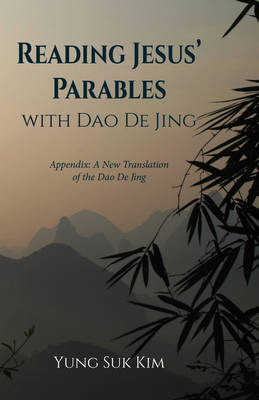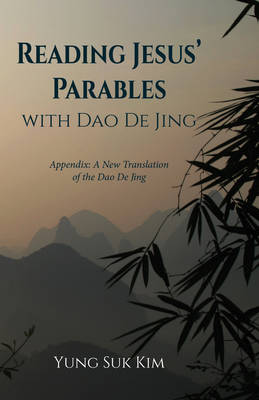
Je cadeautjes zeker op tijd in huis hebben voor de feestdagen? Kom langs in onze winkels en vind het perfecte geschenk!
- Afhalen na 1 uur in een winkel met voorraad
- Gratis thuislevering in België vanaf € 30
- Ruim aanbod met 7 miljoen producten
Je cadeautjes zeker op tijd in huis hebben voor de feestdagen? Kom langs in onze winkels en vind het perfecte geschenk!
- Afhalen na 1 uur in een winkel met voorraad
- Gratis thuislevering in België vanaf € 30
- Ruim aanbod met 7 miljoen producten
Zoeken
Reading Jesus' Parables with DAO de Jing
Appendix: A New Translation of the DAO de Jing
Yung Suk Kim
Paperback | Engels
€ 20,95
+ 41 punten
Uitvoering
Omschrijving
Dao De Jing is an ancient wisdom book, purportedly written by Laozi, who flourished in the sixth century BCE according to the Chinese tradition. It is comprised of eighty-one short poems of which the source is diverse, ranging from personal life to communal and political life. It uses abundant metaphors taken from nature such as water, dust, river, wood, and valley. Laozi reminds his readers to rethink their worldview and purpose of life. Parables of Jesus also are stories about life, ranging from personal identity to social justice. Laozi and Jesus lived in different places at different times. Yet they share a passion and vision to make a better world, full of mercy, justice, and peace. Laozi asks his audience to appreciate the power of smallness in their perspectives. Likewise, in the Mustard Seed, Jesus also helps his audience to see the potential of a small seed that may grow miraculously to several feet tall. This book reads Jesus' parables from the perspective of the Dao De Jing. There is a new translation of the Dao De Jing in the Appendix.
Specificaties
Betrokkenen
- Auteur(s):
- Uitgeverij:
Inhoud
- Aantal bladzijden:
- 76
- Taal:
- Engels
Eigenschappen
- Productcode (EAN):
- 9781532654916
- Verschijningsdatum:
- 10/07/2018
- Uitvoering:
- Paperback
- Formaat:
- Trade paperback (VS)
- Afmetingen:
- 140 mm x 213 mm
- Gewicht:
- 117 g

Alleen bij Standaard Boekhandel
+ 41 punten op je klantenkaart van Standaard Boekhandel
Beoordelingen
We publiceren alleen reviews die voldoen aan de voorwaarden voor reviews. Bekijk onze voorwaarden voor reviews.









